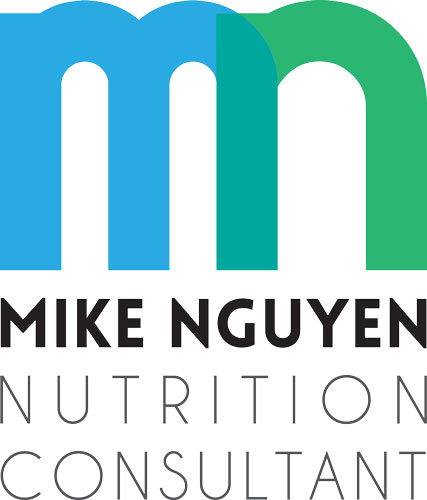This post was originally written for and published on MarthaStewart.com.
While a few aspirin may work perfectly fine to fight off the occasional migraine, relying on over-the-counter pain relievers to deal with chronic headaches isn’t quite so effective. In such cases, the real remedy is more likely to be found in lifestyle changes and natural treatments than it is in the medicine cabinet.
The dreaded headache – it makes you useless, irritable, and desperate for anything that will extinguish the pain. For most, that form of pain relief comes by popping an aspirin, ibuprofen, or acetaminophen. Though this may be effective for remedying the ailment, those who encounter headaches more regularly may wish to seek out safer options appropriate for long-term use.
Consider these natural alternatives for managing the pain if you’re frequented by headaches.
What Exactly is Going On?
Most of us have experienced a headache or two, but from a physiological standpoint what is actually happening when a headache is present? Pain signals are transmitted from other parts of the body (such as the neck) to the brain where pain is perceived as a level of pain in the head (either low grade or severe) while blood vessels surrounding the brain become inflamed. An imbalance in serotonin, a neurotransmitter may also be a cause. According to Life Extension Foundation’s, “Disease Prevention and Treatment,” migraine headaches happen when blood vessels in the head first constrict and then rapidly dilate.
Help!
The good news is there are many types of natural, holistic approaches towards managing headaches without relying on continual use of conventional medicines which could cause harm when taken for long periods of time.
Watch What You Eat
Nutritionally speaking, identifying any foods or additives in foods that your body may be reacting to can be one method in reducing headache occurrences. For instance, sulfites found in most wines could cause headaches for certain individuals. Other common food triggers are: chocolate, nitrates found in commercially preserved meats, and foods containing MSG. Rachel Fiske, a holistic nutritionist at Madrona Wellness says, “Often the signs and symptoms of a food intolerance are not experienced as typical gastrointestinal symptoms that we would easily connect with a food being problematic. For example, if we eat something and then immediately feel stomach pain or bloating, our first thought is a food reaction. However, if we feel a headache in response to a food sensitivity, we are much less likely to make the connection.” Food sensitivities could vary from person to person, so paying close attention to the onset and what your diet consisted of surrounding that time is one way of trying to pinpoint the culprit food.
Hydrate
Sometimes a headache can simply be solved by drinking lots of fluids, particularly plain old water. Hydration is critical in helping to flush out toxins from the body and occasionally supplementing water with electrolytes such as magnesium, sodium, and potassium can correct any imbalances particularly if overexertion, stress, and exercising in heat is involved. Magnesium deficiency is quite common due to overconsumption of processed foods and inadequate intake of whole, nourishing foods like leafy greens. This nutrient can be thought of as the “anti-stress” mineral aiding in promoting relaxation — of muscles and blood vessels while also promoting sound sleep.
Try Feverfew
When it comes to natural plant and traditional herbal remedies, feverfew is a botanical that is used widely throughout parts of Europe as an alternative to NSAIDs. A double-blind placebo controlled pilot study of sublingual feverfew and ginger in the treatment of migraine “appears safe and effective as a first-line abortive treatment for a population of migraineurs who frequently experience mild headache prior to the onset of moderate to severe headache.”
Think About Getting Acupuncture
Tension and tight muscles in the neck radiating upwards towards the head could result in headaches. Acupuncture treatments can do wonders to help alleviate pain and encourage proper blood flow to the affected area. “Although the mechanisms of pain relief from acupuncture are not thoroughly understood, modern studies conducted with functional MRIs show activation or depression of the limbic system which alters our perception of pain,” says Tracey Bonnet, licensed acupuncturist. She also adds, “studies have demonstrated that this treatment can cause the release of endogenous opioids and that the pain relieving effects of acupuncture are at least partially explained by their actions.”
Treat Yourself to Some Aromatherapy
Aromatherapy is another type of safe and natural modality offering a wide variety of fragrant, and therapeutic essential oils from which to choose. Concentrated oils derived from plants and flowers cannot only leave a room or house aromatic but can promote relaxation and trigger physiological responses via the olfactory receptors. Peppermint and lavender oils are particularly beneficial for headaches and can be added to a room diffuser to take advantage of the therapeutic properties.
If Headache? Try These Natural Remedies was helpful, please share this post with a friend so that they too may learn something from reading it.
Also, if you’ve yet to subscribe to my newsletter, you can do so here. This monthly newsletter is a great way to stay informed with nutrition news, tips and tricks, while also receiving free recipes and other giveaways from time to time. Don’t miss out!
Please note:
I am a nutrition educator/consultant and not a physician. As such, I do not diagnose or treat disease, rather I support lifestyle balance and health with my work. Please understand that any information provided on the relationship between nutrition and health is not meant to replace competent medical treatment for any health problem or condition.
Mike is a holistic nutritionist that helps people feel more optimistic about their health and wellness through changes in diet and lifestyle shifts.
He has authored posts and articles featured on MarthaStewart.com, today.com, and iVillage.com.
